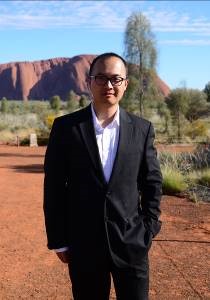
Culture and Tourism课程:前往报名学习
This course mainly focuses on Cultural Heritage Tourism and provides a broad-based interdisciplinary training.Welcome to our course!
开设学校:南开大学;学科:管理学、
This course mainly focuses on Cultural Heritage Tourism and provides a broad-based interdisciplinary training.Welcome to our course!
-1.1 Introduction course outline and UNESCO World Heritage Program
--1.1.1 Introduction of culture and tourism course outline
--1.1.2 Introduction of UNESCO World Heritage Program(1)
--1.1.3 Introduction of UNESCO World Heritage Program(2)
-1.2 Cultural Heritage-1
--1.2.1 The meaning of culture heritage
--1.2.2 Criterion(i): masterpiece of human creative genius
--1.2.3 Criterion(ii): exhibit important interchange of human value
--1.2.4 Criterion(iii): bear a unique or at least exceptional testimony
--How can the public understand the importance of heritage?
-1.3 Cultural Heritage-2
--1.3.1 Criterion(iv): an outstanding example in human history
--1.3.2 Criterion(v): represent a culture or human interaction with environment
--1.3.3 Criterion(vi): associated with living traditions of outstanding universal significance
-1.4 Natural Heritage
--1.4.1 Natural heritage features, formations and criterions
--1.4.2 Cases studies of natural heritage
--Cultural landscape meanings: The case of West Lake, Hangzhou, China
--How to access heritage of your hometown?
-2.1 Mixed Culture and Natural Heritage
--2.1.1 Mixed heritage operational guidelines and cases (1)
--2.1.2 Mixed heritage operational guidelines and cases (2)
--2.1.3 Mixed heritage operational guidelines and cases(3)
-2.2 Authenticity, Integrity and Cultural Routes
--2.2.1 How to determine authenticity and integrity
--2.2.2 Heritage routes and heritage canals (1)
--2.2.3 Heritage routes and heritage canals (2)
--What do you think about cultural heritage categories?
-2.3 Special Heritage and Sustainable
--2.3.1 Physical remains of the history of technology and industry
--2.3.2 Transboundary Heritage, Serial Heritage, Serial/Transnational Heritage
--2.3.3 Intangible cultural heritage
--2.3.4 UNESCO World Heritage and Sustainable Tourism Programme
--Recovering the Memory of Ourselves for the Sustainable Cites
--Week 2 quiz
--What do you think about cultural heritage categories?
-3.1 The Australia’s Heritage System and Sydney Opera House
--3.1.1 The Australian Heritage System
--3.1.2 Case Study: The Sydney Opera House
-3.2 Role of the ISCCL and Cultural Landscape (1)
--3.2.2 Uluru-Kata Tjuta National Park
--3.2.3 Honghe Hani Rice Terraces
-3.3 Role of the ISCCL and Cultural Landscape (2)
--3.3.1 West Lake cultural landscape (1)
--3.3.2 West Lake cultural landscape (2)
-3.4 Rural Landscapes as Heritage
--3.4.1 ISCCL Principles Concerning Rural Landscapes as Heritage
-3.5 Case Study: Mongolian Altai
--3.5.1 Nature Culture Integration & the Mongolian Altai(1)
--3.5.2 Nature Culture Integration & the Mongolian Altai(2)
--Week 3 quiz
--Discussion: What do you think is the role of ISCCL?
-4.1 Introduction of the Meaning of 'landscape’
--4.1.1 Brief introduction of landscape and culture
--4.1.2 The conceptual framework of cultural landscape
-4.2 Landscape Values
--4.2.1 The word “landscape” itself and differences in Western, Eastern
--4.2.2 Cultural significance for heritage source
--Discussion: What do you think the cultural landscape attracts you?
-4.3 Reading the Landscape: Identification and Assessment
--4.3.1 Planning model for heritage conservation management policy
--4.3.2 Cultural landscape resources evaluation steps
--Article: Cultural mapping: Intangible values and engaging with communities with some reference to As
-4.4 Case Study: Wingecarribee Historic Landscape
--4.4.1 Case study:Wingecarribee historic landscape study(1)
--4.4.2 Case study:Wingecarribee historic landscape study(2)
--Week 4 quiz
--Discussion: What should we do to strengthen the protection of cultural landscape?
-5.1 Indigenous Tourism
--5.1.1 Indigenous tourism background
--5.1.2 World heritage and indigenous peoples
--5.1.3 Tourism issues at Canadian indigenous world heritage sites
--Discussion: What challenges indigenous World Heritage faces?
--Article: State conceptions of indigenous tourism in Chile
-5.2 Case Study and Conclusion: Great Expectations for Tourism
--5.2.1 Case study Pimachiowin Aki
--5.2.2 Conclusions:Great Expectations for Tourism
--Disussion: Do you have any experience of indigenous tourism?
--Week 5 quiz
-6.1 The Definition of Heritage in Heritage Performance Study
--6.1.1 The definition of heritage in heritage performance study
--6.1.2 Heritage performance and meaning making
--6.1.3 Two key issues emerging from qualitative study
-6.2 Heritage Performance - Evidence from Australia, England and USA
--6.2.1 Heritage performance - reinforcement
--6.2.2 Heritage Performance - inter-generational communication and social values
--6.2.3 Heritage performance - recognition and respect
--6.2.4 Heritage performance - education
--Article:Theorizing museum and heritage visiting
-6.3 The Conclusion of Heritage Performance
--6.3 The conclusion of heritage performance
--Week 6 quiz
--Discussion: What kinds of heritage performances have you learned in this week?
张柔然,南开大学旅游与服务学院讲师,澳大利亚国立大学博士,天津市131创新型人才培养工程培养对象。研究方向为世界遗产规划管理、遗产旅游。他担任国际古迹遗址理事会—国际风景园林师联合会文化景观科学委员会青年委员,国际古迹遗址理事会文化旅游科学委员会青年委员。他作为中国代表参与国际古迹遗址理事会(ICOMOS)与世界自然保护联盟(IUCN)合作项目“文化-自然之旅”项目,并参与制定两份国际文件。他在权威SSCI期刊发表论文三篇,中文核心期刊论文数十篇,多次主持和参与国际会议并发表学术演讲。主持国家自然基金青年项目、天津市哲学社科项目各一项。2017年起受联合国教科文组织委托翻译并出版《历史城镇管理》等四本专著。他的英文专著《Chinese Heritage and Their Audiences:the Power of the Past》即将在2020年由英国著名出版社Routledge出版。